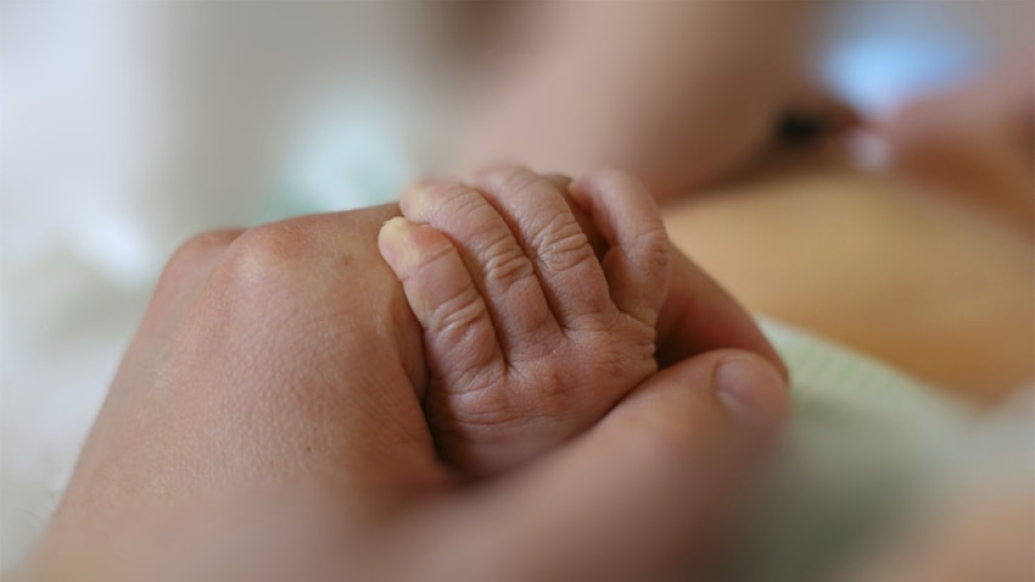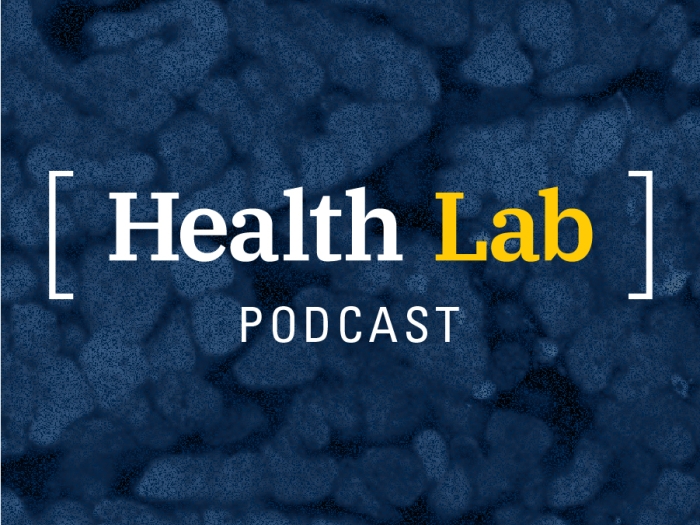A University of Michigan-led study will assess the efficacy of two common treatments for neonatal seizures.
1:00 PM
Author |

For parents, watching their newborn baby have seizures can be a traumatic event.
But for physicians, it's what happens after the seizure that garners attention.
More than 16,000 newborns in the U.S. experience neonatal seizures each year, events that leave at least 50 percent with long-term disabilities such as cerebral palsy or epilepsy. Even with this prevalence, the best approach for treatment remains unknown.
"Despite the wide-ranging impacts of neonatal seizure, we still have alarmingly significant gaps in what we actually know about their impact on children," says Renée Shellhaas, M.D., M.S., pediatric neurologist at the University of Michigan's C.S. Mott Children's Hospital.
As a result of these gaps, there is exceptional variation among different physicians' management of infants with seizures.
Phenobarbital is the standard course of treatment, but how long to treat a baby with seizures with the drug remains an open question with significant variability across practice.
Some physicians discontinue therapy a few days post-seizure while others may extend treatment for up to a few months to ensure the seizures are behind them.
"Unfortunately, there are still some things we don't know about neurodevelopmental consequences of phenobarbital therapy, and whether the benefits of continuing treatment to prevent future seizures outweigh the risks," says Shellhaas. "Doctors and parents all agree — we must study this further so that real evidence can drive our decisions going forward."
The wide variability in clinical practice has made it difficult to study the long-term outcomes across larger groups of seizure patients.
Shellhaas and her colleagues were recently awarded $2.8 million in funding from the nonprofit organization PCORI to take a novel approach to studying how these children fare long term.
"Previous attempts at studying this have failed because randomization just isn't a viable option in this population group," says Shellhaas, the principle investigator for the study. "We believe doctors are already making the decision they feel is right for each child — so our approach will stratify children based on the type of treatment they are receiving, and we will follow them through age 2 to monitor their development and comorbidities."
We hope that the results of this research will lead to meaningful improvements in outcomes for newborns with seizures.Renée Shellhaas, M.D., M.S.
Examining treatment methods
The study's design will take advantage of heterogeneity of treatment duration for newborns in the study's registry to determine the comparative effectiveness of the two common neonatal seizure treatment approaches:
-
Short treatment duration (medication discontinued prior to discharge from hospital)
-
Prolonged treatment (medication continued until the time of outpatient follow-up)
Both groups will be examined for neurodevelopmental outcomes, rates of epilepsy and the impact on parent and family well-being.
One of the signature characteristics of research supported by PCORI is that each study must address the questions and concerns most relevant to patients and families.
Shellhaas and her team conducted focus groups and an online survey of more than 100 parents of infants who had experienced neonatal seizures to assess what they would hope to learn from the study. The findings showed that the medical management of children in the period following the seizures affected parents just as much as the seizures themselves.
"Our parent survey showed major concerns about medication side effects and concerns about the long-term effects of this type of medication on their child's development," says Shellhaas.
Many parents also highlighted concern about duration of therapy, asking whether infants were overmedicated to prevent something that may never happen.
"Sedating medications have an impact on the whole family," says parent Libby Hill. "The effect this type of sedation has on an entire family can't be understated."
Hill, who is a pediatrician in training and the mother of an infant with neonatal seizures, helped develop the study. The study will span seven high-volume children's hospitals across the country.
"We hope that the results of this research will lead to meaningful improvements in outcomes for newborns with seizures," says Shellhaas. "If giving more phenobarbital does not change the risk of developmental delay or epilepsy, and is acceptable to families, then this study will provide key evidence that shorter treatment duration is safe and we can eliminate unnecessary exposure to medication for these babies."
The University of Michigan PCORI award has been approved pending completion of a business and programmatic review by PCORI staff and issuance of a formal award contract.

Explore a variety of health care news & stories by visiting the Health Lab home page for more articles.

Department of Communication at Michigan Medicine
Want top health & research news weekly? Sign up for Health Lab’s newsletters today!





